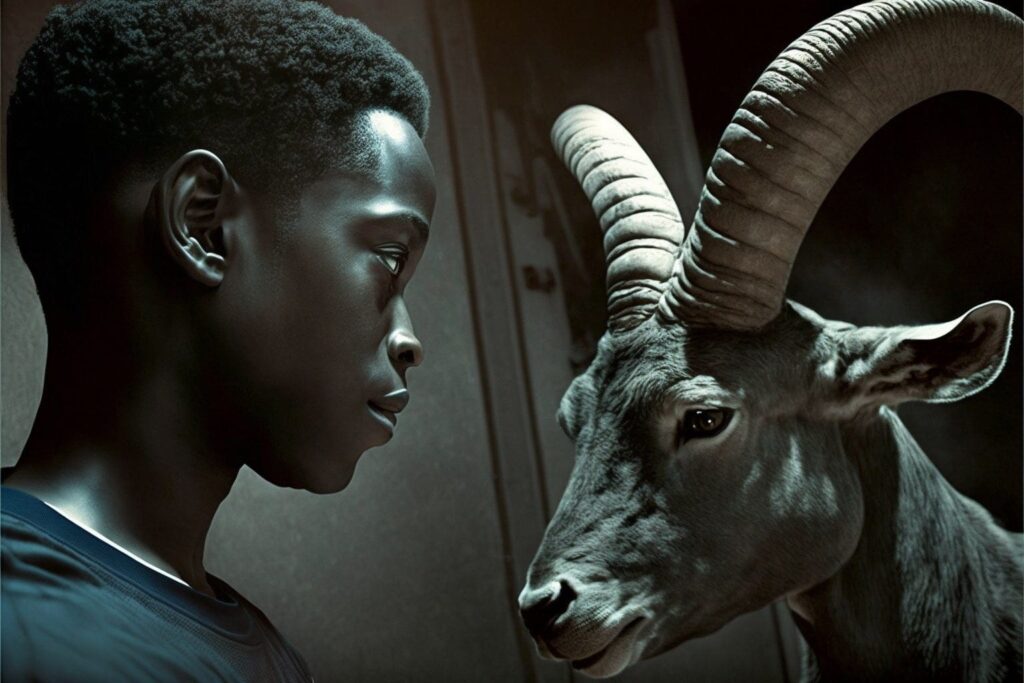Stell dir vor, du scrollst durch TikTok oder Instagram und stolperst dabei über kurze News-Clips: Ein Influencer oder eine Influencerin spricht über das Weltgeschehen, vielleicht mit dramatischer Musik im Hintergrund oder unterhaltsam verpackt in 15 Sekunden. Schnell fragst du dich: Sind diese Infos überhaupt seriös?
Während Gen Z oft über Social Media mit Nachrichten in Kontakt kommt, setzen manche Millennials eher auf Podcasts während der Bahnfahrt, und viele aus der Gen X ausser mir schauen noch regelmässig die Tagesschau im TV. Ich schaue sie nur einmal im Monat. Aber was wäre, wenn all diese Formate nur noch von grossen Konzernen oder reichen Mäzenen finanziert würden – und unabhängige Stimmen immer mehr verschwinden?
In Ländern wie den USA ist das bereits Realität: Öffentliche Sender wie NPR (National Public Radio) haben wenig Geld, etliche Lokalzeitungen sind längst geschlossen, und Fake News haben oft leichtes Spiel. Genau hier setzt unsere Rundfunkgebühr in Deutschland und der Schweiz an. Ja, sie ist verpflichtend, aber sie dient einem Zweck: unabhängigen Journalismus zu gewährleisten, der nicht allein von Werbegeldern oder Milliardären abhängt. Und wieso das für alle Generationen – von Gen Z bis Gen X – wichtig ist, möchte ich in diesem Artikel zeigen.
@srfnews Im Grossraum Los Angeles kämpft die Feuerwehr gegen verheerende Waldbrände, die sich rasant ausbreiten. Eine Fläche von mindestens 16 Quadratkilometern steht bereits in Flammen ???? 30'000 Menschen mussten ihre Häuser verlassen. Kaliforniens Gouverneur Gavin Newsom erklärt für die Region den Notstand. Besonders betroffen ist der Stadtteil Pacific Palisades im Westen von Los Angeles, wo auch einige Hollywood-Stars Häuser besitzen. ???? Die Brandursache ist noch nicht bekannt. Sicher ist aber: Das trockene Wetter der vergangenen Monate hat die Feuer begünstigt. Wegen anhaltender starker Winde könnten sich die Brände in den kommenden Tagen noch vergrössern. #waldbrand #losangeles #usa #kalifornien #srf #news #srfnews ? Originalton – SRF News
Eine Demokratie braucht unabhängige Medien
Wir alle – ob Gen Z, Millennial oder Gen X, ob Frau oder Mann – haben uns daran gewöhnt, schnell und leicht an seriöse Informationen zu kommen. Tagesschau, Rundschau, Deutschlandfunk oder Echo der Zeit: Hier wird sorgfältig recherchiert, Fakten werden gegengecheckt, unterschiedliche Perspektiven kommen zu Wort. Grund dafür ist ein über Jahrzehnte gewachsenes System öffentlich-rechtlicher Sender, die nicht bloss auf Werbeeinnahmen oder millionenschwere Gönner angewiesen sind.
Studien – zum Beispiel von der Heinrich-Böll-Stiftung – belegen, dass Ländern mit einem starken öffentlich-rechtlichen Rundfunk eine besser informierte Bevölkerung haben. Dort ist die Wahrscheinlichkeit geringer, dass Menschen blind Fake News glauben oder extremistischen Theorien folgen.
Kurz gesagt: Ein funktionierender öffentlich-rechtlicher Rundfunk wirkt wie ein Bollwerk gegen Desinformation und Manipulation. Ob du deine News in Snack-Form bei TikTok (Gen Z) holst, lieber unterwegs Podcasts (Millennials) hörst oder klassisch die Tagesschau (Gen X und Boomer) schaust: Du profitierst davon, wenn es neutrale, verlässliche Quellen gibt.
@srfnews Der Zoo Zürich hat Ende September drei Erdmännchen getötet und an Hyänen verfüttert – eine Massnahme im Rahmen des Tiermanagements, die in den sozialen Medien für Diskussionen gesorgt hat. Die Universität Zürich schlägt vor, solche Praktiken in Zoos weltweit zu erlauben, da sie dem Naturschutz und der Aufklärung der Öffentlichkeit dienen sollen. Cristina spricht mit dem Zürcher Zoodirektor Severin Dressen Direktor, um mehr über dieses Vorgehen zu erfahren. #zoo #zurich #tierpopulation #news #srfnews ? Originalton – SRF News
Was kostet das – und was bringt es?
Ja, die Gebühren sind nicht gerade niedrig. In Deutschland zahlen wir momentan knapp 20 Euro pro Monat, in der Schweiz knapp 30 Franken. Zum Vergleich: Ein Standard-Netflix-Abo kostet in Deutschland 12,99 Euro, in der Schweiz 18,90 Franken.
Klingt teurer als ein Streamingdienst, aber öffentlich-rechtliche Sender leisten, was Netflix & Co. nicht bieten:
- Unabhängige Nachrichten rund um die Uhr in TV, Radio und online
- Investigative Recherchen und politische Hintergründe (z. B. Enthüllungen wie Cum-Ex oder Wirecard)
- Kultur und regionale Berichte, von grossen Dokumentationen bis zu lokalen Reportagen
- Bildungsformate, die komplexe Themen verständlich machen (z. B. «Quarks»)
- Sportübertragungen, die ohne Paywall für alle zugänglich sind
Vergleicht man das mit dem US-System, sieht man den Unterschied: Dort müssen Sender wie NPR oder PBS ständig um Spenden werben und sind oft finanziell am Limit. In vielen Regionen gibt es keinen unabhängigen Lokaljournalismus mehr, sondern nur noch Medien, die privat finanziert sind und entsprechend ihre Geldgeber zufriedenstellen müssen.
@quarks Was ist deine Lieblingsserie? ? #quarks #lernenmittiktok #serien #filmtok #squidgame #wissen ? Originalton – Quarks
Kritik am System
Klar, das öffentlich-rechtliche System ist nicht perfekt. Manche Formate treffen meinen Geschmack nicht, manche Gehälter von Intendantinnen und Intendanten wirken unverhältnismässig, und auch die Ansprache junger Menschen könnte besser sein. Doch was wäre die Alternative?
Eine Medienlandschaft, in der man nur das zu sehen oder hören bekommt, was finanzstarke Werbekunden oder Investorinnen und Investoren zulassen. In den USA zeigt sich, wie polarisiert das werden kann: Sender wie Fox News oder CNN vertreten oft klar eine politische Linie. Neutrale Nachrichtensendungen wie die Tagesschau oder die Tagesthemen existieren dort so gut wie nicht.
Der Unterschied ist deutlich: Eine Studie der Universität Mainz bestätigt, dass öffentlich-rechtliche Sender in Deutschland und der Schweiz im internationalen Vergleich als besonders glaubwürdig gelten. Trotz aller Kritik vertrauen viele Menschen ARD, ZDF oder SRF mehr als privaten Medienhäusern.
@quarks Würdest du diesen Test machen? ?#quarks #lernenmittiktok #böse #wissen #psychologie ? Originalton – Quarks
Fazit: Gemeinsam bezahlen, um unabhängige Berichterstattung zu gewährleisten
Egal, ob du lieber Netflix schaust, dir im Radioprogramm aktuelle Themen anhörst oder auf TikTok News-Clips konsumierst: Die Grundfrage bleibt, wer für unsere Informationen zahlt.
- Sollen Nachrichten von Unternehmen oder einzelnen Vermögenden abhängen, die ihre eigenen Interessen durchsetzen wollen?
- Oder finanzieren wir gemeinsam einen Rundfunk, der uns allen gehört und sich durch möglichst grosse Unabhängigkeit auszeichnet?
In Deutschland und der Schweiz müssen wir den Rundfunkbeitrag per Gesetz zahlen. Aber anstatt ihn nur als Zwang zu sehen, können wir ihn auch als Investition in eine vielfältige Medienlandschaft begreifen. Denn wenn wir auf den öffentlich-rechtlichen Rundfunk verzichten müssten, würde es schnell an vertrauenswürdigen Infos fehlen – was am Ende weitaus teurer sein kann als eine Monats- oder Jahresgebühr.
Beitragsbild von Solen Feyissa.




